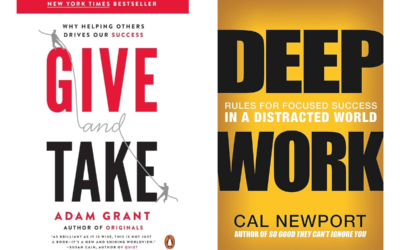How many conversations have you had where you start to talk about something and before you even finish someone is telling you what to do?
We’ve all seen the tropes on tv of typically women wanting to vent and typically men wanting to fix it. So why do we all try to fix things?
And why doesn’t it work?
- People want to be heard – by skipping over what people are saying we’re not hearing them, this not only ignores them as a person we end up making faulty assumptions
- People aren’t ready – while we don’t want people to be stuck in venting forever, its important to acknowledge that people may be verbally processing or not be ready for deciding on or taking action
- Advice feels like judgment – it can come across as sounding like their issue isn’t so complicated here’s the answer or as if we believe they can’t figure it out themselves
- People learn by doing – if we tell people what to do we’re robbing them of the process and they’re not bought into the advice
- We’re attached to the solution – if we propose something that we think will work and the person doesn’t do what we suggest it can make them feel bad for not doing it and shut down any further conversation
- We’re wrong – we often come at things from our own perspective and with limited information from the person and so while the answer seems obvious to us it actually might not be right
- We’re responsible for the advice – whether the person does what you say or doesn’t you’re now aligned with the success of your suggestion regardless of how they execute
So if advice doesn’t work what do we do? Listen, ask questions, acknowledge and validate.
And give advice a better way.
Sometimes advice can be helpful. If someone is looking for the bathroom I’m not going to ask them why they need to find it. Or ask them how they think they should find the bathroom. Or tell them how difficult it must be to not be able to find it.
If you have info that would be helpful try asking if they would like some info. It can be helpful to provide some context e.g. I know someone in X situation and Y worked for them. Try multiple options and what some considerations are on each. And don’t be attached to the outcome.
Then go back to listening, asking questions, acknowledging and validating.
If the person asking your advice happens to be your employee these techniques still stand but with a slightly different lens. We of course want to ensure staff is trained appropriately. And then when it comes to the more gray areas like problem-solving ensure we’re clear on the challenges and the desired outcome. Set the expectation that your team comes to you with proposed solutions which helps foster growth and a spirit of autonomy that will create a more successful and sustainable team. And you want your team to be less dependent on you so you can focus on your own priorities.
Let me know if you try this out and how it goes.
Many people think that coaches are going to tell you all the information to solve all of your problems. Did you know that technically coaching as a skill isn’t giving you information? Though many coaches also act as trainers or mentors. Reach out to set up some time if you want to hear more about how coaching works.













0 Comments